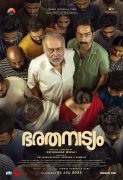On Page Factors
There are many changes we can make on the page to optimize for search engines. These are called on page factors.
1. Title Tag: This is a very important for pages ranking in search engines. It should be a meaningful sentence with around 60 to 90 characters. Don't list keywords with commas in title. Also don't repeat words many times.
2. Meta Description: This is another important tag for search engines. This is a one or two lines summary of the page. Maximum allowed is 255 characters. 150 to 200 should be ideal.
3. Meta Keywords: Not all search engines consider this and is loosing its importance day by day but it is better to include it because search engines like Yahoo and Msn use this to identify main keywords. List keywords separated by comma or space.
4. H Tags: Include your main keywords in H1 or H2 Tags. This has a special importance in search engines.
5. Bold and Italic: Try to include main keywords in bold or italic words.
6. Subheadings: Divide your content in to small paragraphs and give subheading and include main keywords in subheadings.
7. Content: Write at least 300 words per page. 400 to 500 should be ideal. Don't repeat words quite often. Split long pages to sub pages.
8. HTML and CSS: Use a HTML validator and validate your html code. Stick to latest HTML standards and use Cascade style sheet (CSS) to reduce code size.
Off Page Factors
Try to get maximum links from other quality sites. Incoming links is a main factor deciding Google's Page Rank. Google consider each incoming link as a vote to that page and your page rank is a sum of all your incoming links to your total outgoing links.
Search Engine Optimization in India
Search engine optimization is still not picked up really well in India. It is due to lack of experts in this field and high initial cost. Many big sites and Indian portals are having many technical issues related to search engines. Search engines change their algorithm quite often so we need to have a long term optimization strategy to keep a good ranking in SERPS.
 Pani
Pani Lucky Baskhar
Lucky Baskhar Pallotty 90s Kids
Pallotty 90s Kids Sookshmadarshini
Sookshmadarshini Porattu Nadakam
Porattu Nadakam Jai Mahendran
Jai Mahendran Bombay Positive
Bombay Positive Bharatanatyam
Bharatanatyam